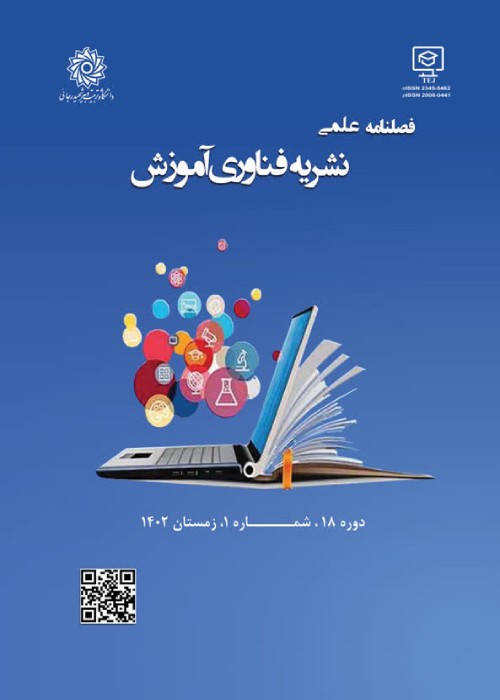The technological pedagogical functions of moocs to employees in the workplace
With an awareness of the era that entails the day-to-day changes, the organizations must constantly keep up with technology and technological changes and implement them to survive and achieve the best possible results. One of these changes is making decision about the implementation of massive open online courses (MOOCs) in digital learning area at the workplaces, which is regarded as a complicated issue. Awareness of and informing about the effectiveness of educational services of this type of technology, as one of the manifestations of virtual education, is not inconclusive in choosing this path due to the key role of MOOCs as a potential educational strategy in organizations and companies in developed and developing countries. The purpose of this research was thus to identify the technological pedagogical functions of MOOCs to employees in the workplace.
This basic research was conducted using a qualitative research synthesis technique. The corpus included documents (books, research and review articles, dissertations and Internet resources) retrieved by searching the authentic Persian (Islamic World Citation Database (ISC), Magiran, Noor Database (Noormags), CIVILICA Institute for Humanities and Cultural Studies, Barakat Knowledge Network System, Iran Scientific Information Database (GANJ) and Iranian Research Institute for Information Science and Technology (IranDoc) and Latin web databases (ProQuest, Springer, Scopus, Science Direct, and also Google Scholar search engine) retrieved from 183 sources using a criterion sampling method (From corporate MOOCs 2014 to 2022). A total of 45 samples were selected. Theoretical saturation of themes was reached by the 32th sample. In order to collect data, the library research method was used. The collected data were then analyzed using a thematic analysis technique that is used in qualitative research studies. Finally, to validate the proposed model, a total of six experts in different fields, such as curriculum and educational planning, educational technology, and electronic learning were selected using a purposive sampling method. The researcher-made questionnaire for content validation of conceptual model was then sent for them. The final model was approved after modifications.
Based on the findings of this research, three main components were obtained. The first group was the educational process with six sub-components (Educational targeting of courses, Contents of training courses, Various professional learning methods, Professional educational activities, Educational resources of the courses, and performance evaluation); the second group was the supporting part with five sub-components (training coverage of staff, Educational support, Educational expenses, Educational stimuli, and capabilities of the educational method); and the third group was the operational part with three sub-components (Educational areas, Complementary skills training, and Creating professional soft skills).
This study showed the probable consequences of educational functions of MOOC in the workplace. The beneficiaries, including organizations, companies, and employees, can reliably employ these functions in their education system by paying more attention to them because it can be said that most organizations in Iran seem to be still unaware of its potential educational benefits. In a world where with the rapid development of technology, being online is considered a necessity both personally and professionally in Iranian organizations, and the today's workforce is expected to be highly skilled and to continuously improve their skills based on the today's global standards, they can acquire these new skills through life-long learning, i.e. MOOCs, in an advanced digital environment.
- حق عضویت دریافتی صرف حمایت از نشریات عضو و نگهداری، تکمیل و توسعه مگیران میشود.
- پرداخت حق اشتراک و دانلود مقالات اجازه بازنشر آن در سایر رسانههای چاپی و دیجیتال را به کاربر نمیدهد.



